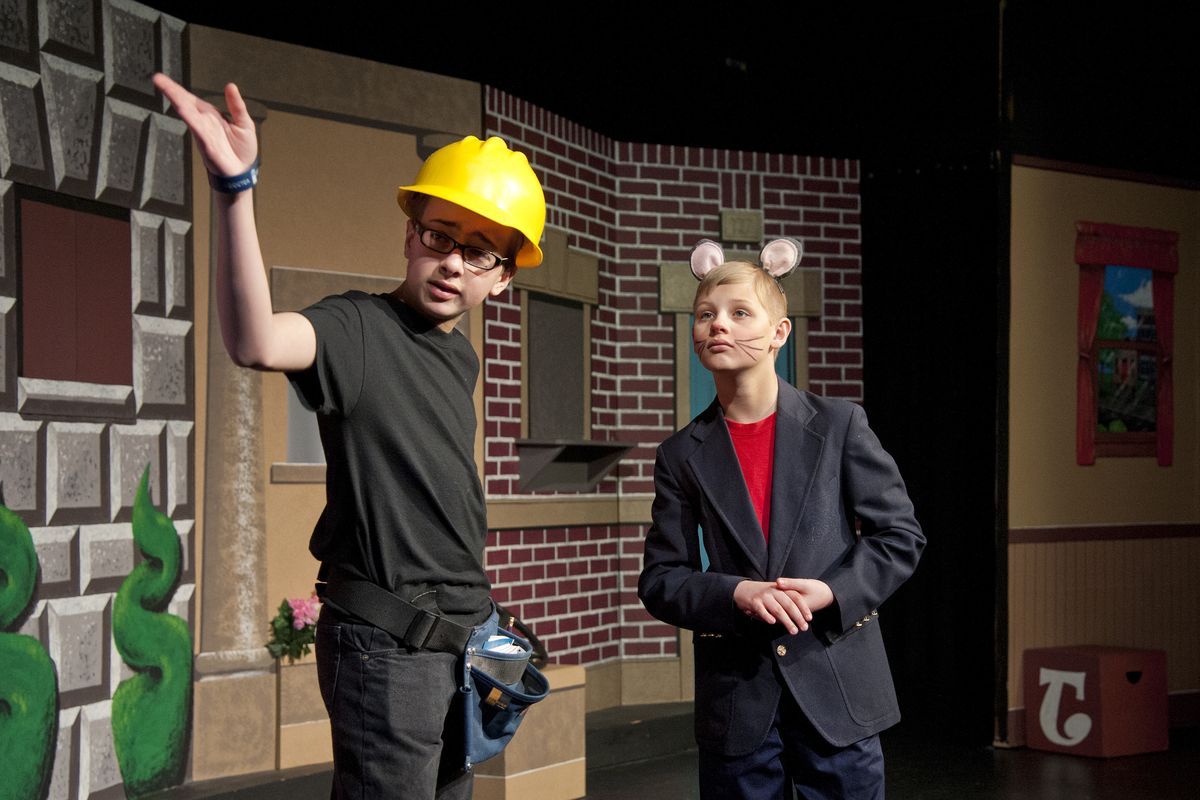Spokane Children’s Theatre facing rising costs

Judy Brender does a lot of math in her head, the kind of never-ending tally probably familiar to anyone on a tight budget.
Brender, president of the Spokane Children’s Theatre, knows the price of soap in the restrooms. She knows how much the theater’s new firewall cost, and its heating and cooling equipment, and how much the theater pays monthly for its lease and insurance.
She knows the theater, launched in 1946, won’t last much longer if it keeps losing money.
Spokane Children’s Theatre will hold an open house Tuesday, offering season tickets at a discount, dessert, and tours of its new stage led by child actors in costume. Theater volunteers will be available with information about auditions.
The ticket-sales event is among efforts to raise cash to keep the theater running after a string of money-losing seasons. Struggling to find an affordable place to rehearse and stage its shows as its audiences shrank, the theater has spent much of its savings to stay afloat and build its own space in two leased units in a strip mall in northeast Spokane.
But it’s been maintaining its schedule of children’s productions – providing free stage training and a sense of “instant family” for young actors, Brender said, as they spin stories on the stage for young audiences. The theater’s veterans include professional actors and directors.
“We’ve been working like crazy, hanging on by our fingernails,” Brender said.
Launched by the Junior League of Spokane, the children’s theater has been on the move since the 1990s, when it lost its rented space at the Spokane Civic Theatre. Its casts performed on rented stages at community colleges and elsewhere.
But as rising rents grew unaffordable, the theater’s board of directors sought a permanent location: “Always, always we wanted a home,” Brender said.
To make the strip-mall theater, they converted two adjoining units, knocking down walls and installing a lobby, stage and house.
The theater opened in 2012. Now on more solid ground, Spokane Children’s Theatre is looking ahead. But the math still makes Brender nervous.
The theater lost audience members and money in the moving-around years. And while ticket proceeds from one show carried the theater until the next show for most of the theater’s 68 seasons, that doesn’t work today in light of higher insurance rates, utility costs, royalty fees and other bills, Brender said.
And with an audience made mostly of 4-year-olds to preteens, the theater lacks a permanent base of longtime supporters, Brender said. Along with the theater’s moves, she blames the recession for hurting ticket sales.
The organization slashed directors’ budgets, and some are going without pay. It’s applying for grants and running a schedule of fundraisers. It also dropped the price of a child’s ticket from $12 to $8, to make admission more affordable for families, and Brender said it plans to stage higher-quality shows with more name recognition, even though their royalties are pricier.
While relatively few theaters are launched solely for children, children’s theaters are facing greater competition from one another, said Julie Crawford, executive director at the American Association of Community Theatre, based in Fort Worth, Texas.
A theater that finds a niche – along with strong leadership and a clear vision – has an easier time surviving, Crawford said.
Spokane Children’s Theatre remains committed to being free for participants, because that helps set it apart and lets families participate – sometimes adults take the stage, too – regardless of income, Brender said. Students who participate in Christian Youth Theater affiliates, for example, pay to take classes and participate in shows.
Three of Spokane resident Jean Dimmel’s four children have acted in children’s theater shows. She liked that she didn’t have to commit to classes before they could audition and that “there were no fees, to my astonishment,” she said.
Her children grew confident speaking in front of groups and better at working as part of a team, she said.
Dimmel’s 7-year-old daughter, undergoing chemotherapy to treat cancer diagnosed in March, auditioned for a show two days before undergoing surgery, Dimmel said. If her daughter felt up to participating at any point during her treatment, she was told, there would be a place for her.
“This is what Spokane Children’s Theatre is about,” Dimmel said.